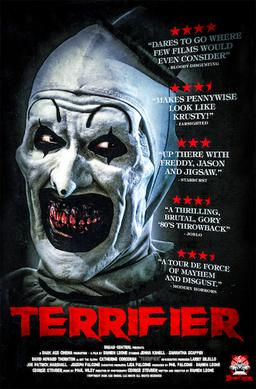Orphan (2009) review
- Jeremy Kelly
- Oct 27, 2021
- 4 min read
27. Orphan (2009)
Directed by: Jaume Collet-Serra
Produced by: Joel Silver, Susan Downey, Leonardo DiCaprio, Jennifer Davisson Killoran
Screenplay by: David Leslie Johnson
Starring: Vera Farmiga, Peter Sarsgaard, Isabelle Fuhrman, CCH Pounder, Jimmy Bennett

I promise, this is the last film featuring an evil child; but it sure packs a wallop. Director Jaume Collet-Serra is more known today for helming Liam Neeson action movies, but one of his early works was “Orphan” from 2009. The plot has similarities to “The Bad Seed,” which I reviewed a few years ago; it’s essentially about a disturbed young Russian girl named Esther (Isabelle Fuhrman) who kills people. Those are the bare basics of what happens, but in this case, she’s an orphan who’s just been adopted by the Coleman family, and we see how they gradually splinter apart as a result of her actions. The story gets frustratingly formulaic, but the performances and many aspects of the visuals still make it a hauntingly disturbing entry.
Kate and John Coleman (Vera Farmiga & Peter Sarsgaard) are a married couple whose relationship has been strained after the stillbirth of their third child Jessica, with Kate now a recovering alcoholic. They adopt the 9-year-old Esther from an orphanage; she’s polite, intelligent and pristine, complete with bows in her hair and ribbons around her wrists and neck. Their deaf youngest daughter Max (Aryana Engineer) embraces her, but their older son Danny (Jimmy Bennett) is unwelcoming. As time passes, Esther exhibits strange and sometimes hostile behavior, remorselessly killing an injured pigeon and badly injuring a bullying classmate. Then when Sister Abigail (CCH Pounder), the head of the orphanage, visits to warn Kate and John about past trouble Esther was associated with, she causes her car to crash and kills her, and forces Max to help her hide the body. Kate is suspicious but uncertain about Esther’s actions, while John is completely oblivious; nevertheless, Kate starts digging into her mysterious past, and eventually discovers a terrifying truth. But is it too late for her and her family?

Let’s start by saying that Isabelle Fuhrman is fantastic as Esther; it would have been so easy for this character to come across as annoying or cliché, but she really makes it work. She sells the innocence, the naivety, the deadpan, the maliciousness, the cockiness, the manipulation and the fury. Some of the scariest scenes are when she’s with Max, threatening her into participating in her misdeeds; I know it’s an easy trick to use a small child to get across how bad the situation is, but their scenes always leave an impact, and it just helps that Max is almost impossibly cute. On the other side, Vera Farmiga makes for a strong and compelling heroine as Kate, who’s constantly in a state of inner turmoil, trying to grow from her past mistakes, which only get used against her. Farmiga has since starred in the “Conjuring” franchise, and earned an Emmy Award nomination for her role in the “Bates Motel” TV series, becoming a solid modern “scream queen.”
However, one of the major downsides is specifically how the story unfolds; it’s very predictable and repetitive, mostly centered on Esther doing something bad, and people of authority not believing it. Kate’s therapist Dr. Browning (Margo Martindale) is rather incompetent, while John is honestly one of the most aggravating characters in recent memory, giving Esther every benefit of the doubt and Kate virtually none. I know circumstances have already left them on shaky ground, but he doesn’t even entertain the possibility of what she tells him, rather accuses her of being neglectful and downright abusive; just listen to your wife, man! Also, if Sister Abigail had her information on Esther, why wouldn’t she bring this up to Kate and John before? There are also a lot of really overused horror tropes, like the lingering shots of a bathroom vanity mirror, and point-of-view tracking shots of nothing; stuff like that is really lame, and it only takes away from the film’s overall atmosphere, which is mostly sound.

That’s due to a good portion of the visuals; much like with yesterday’s film, the snowy landscape helps give it a unique look, even though they probably could’ve dwelled on it a bit more. But what sticks with me the most is when the black light goes on in Esther’s room, and we see the true nature of Esther’s paintings. The overall motif is kind of cheesy, but it results in some great camera angles, and the imagery of the paintings is evocative and creepy. But I think what most people remember about this movie is the twist ending; honestly, I’ve gone back and forth with how I feel about it. Without giving it away, it is reasonably set up, but I can’t help but feel it cheapens the concept, which is something that “The Bad Seed” didn’t do. I know this isn’t trying to be a remake of that, but it feels somehow less troubling this way, although I’ve read that earlier drafts of the script expanded more on the development, which probably could’ve helped.
For all its faults, “Orphan” has plenty going for it; you may get annoyed at times, but when it’s properly focused, it can be a scary film. It has a surrealistic mood, the dialogue is witty, and the running mental and physical battle between Kate and Esther is endearing in an almost sadistically cutthroat way. There’s actually a prequel called “Orphan: First Kill” that’s in post-production, with Fuhrman reprising her role; for obvious reasons, I have to wonder how that would actually work, but let’s wait and see. After all, it’s directed by William Brent Bell, who also did “The Devil Inside”…aw, shit. Well, this is still worth seeing; it probably could’ve been cut down by a fair bit, but it’s pretty good.
My rating: 7.5/10





Comments